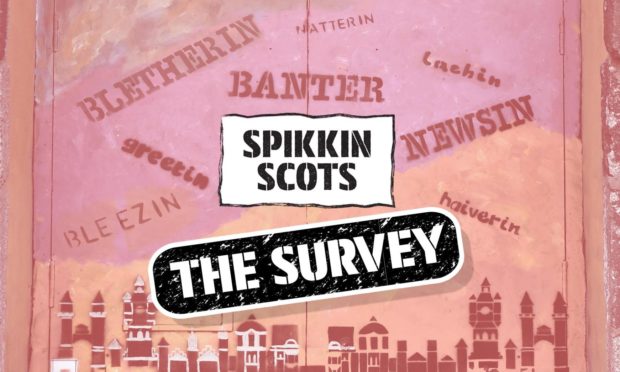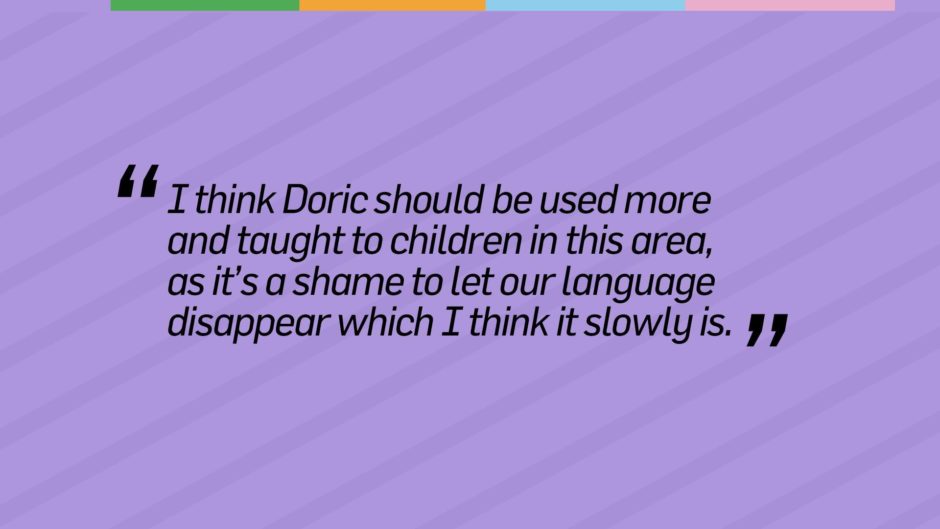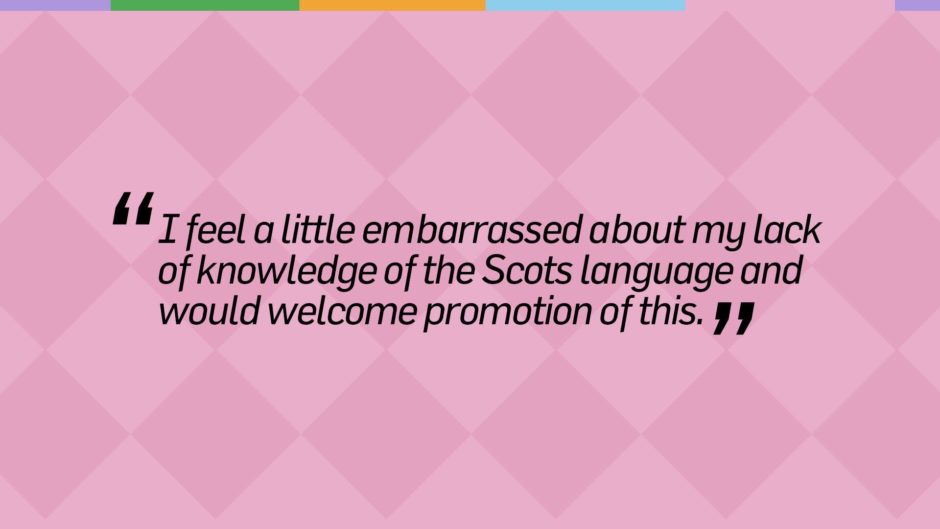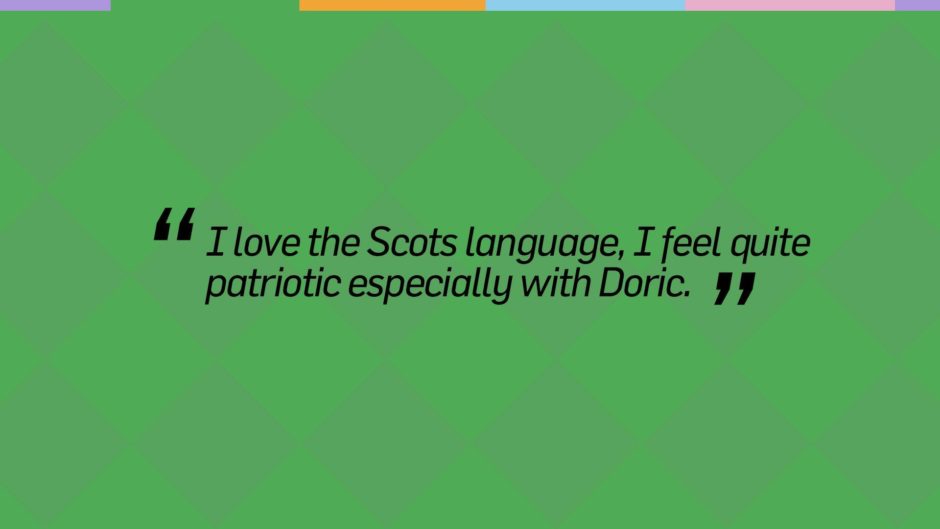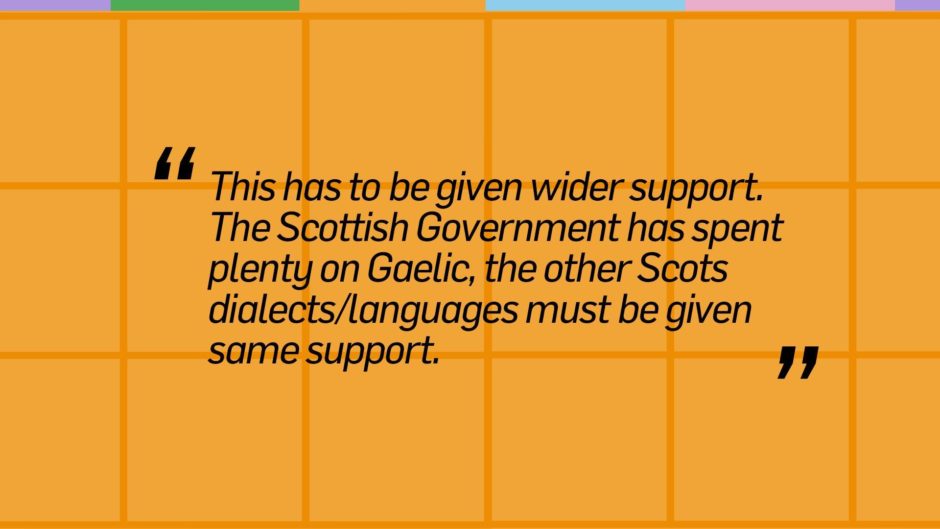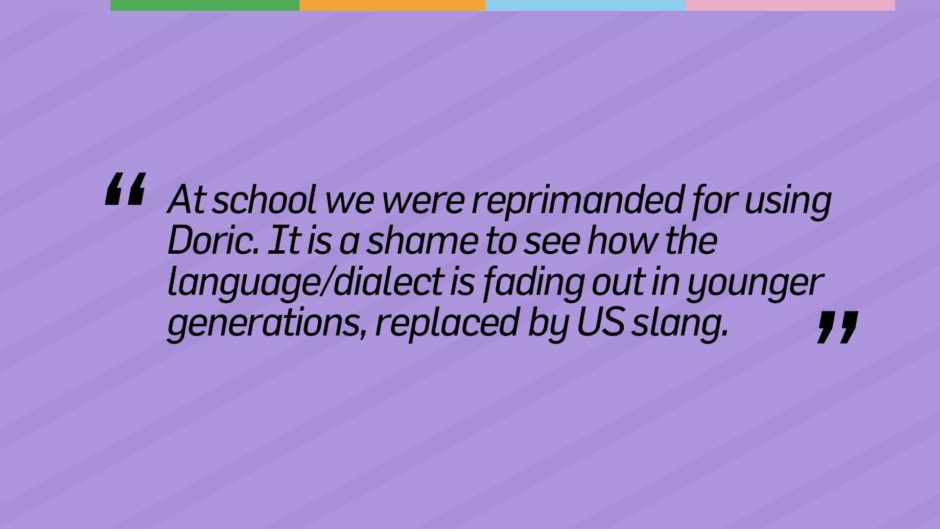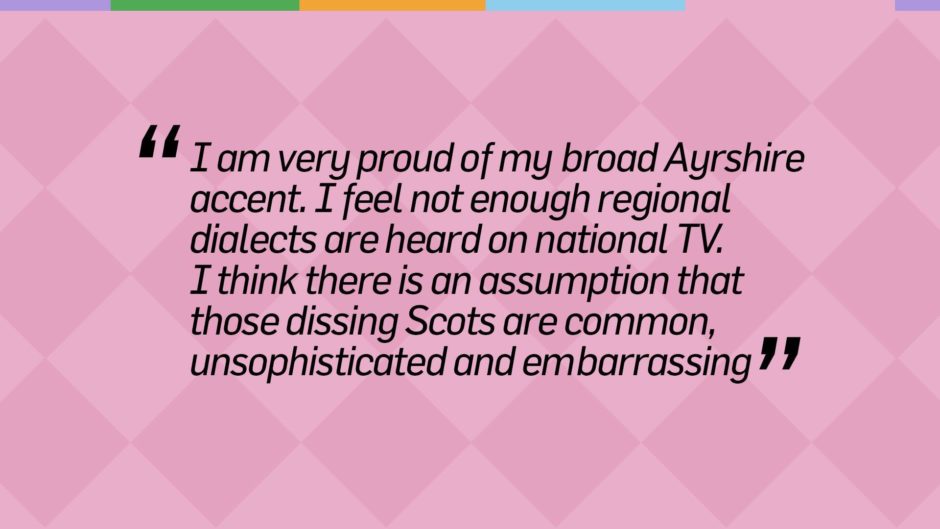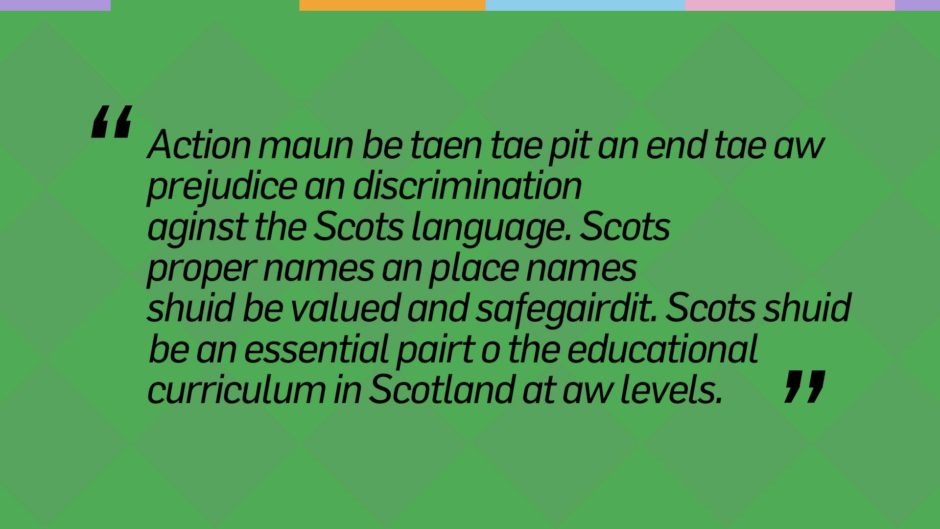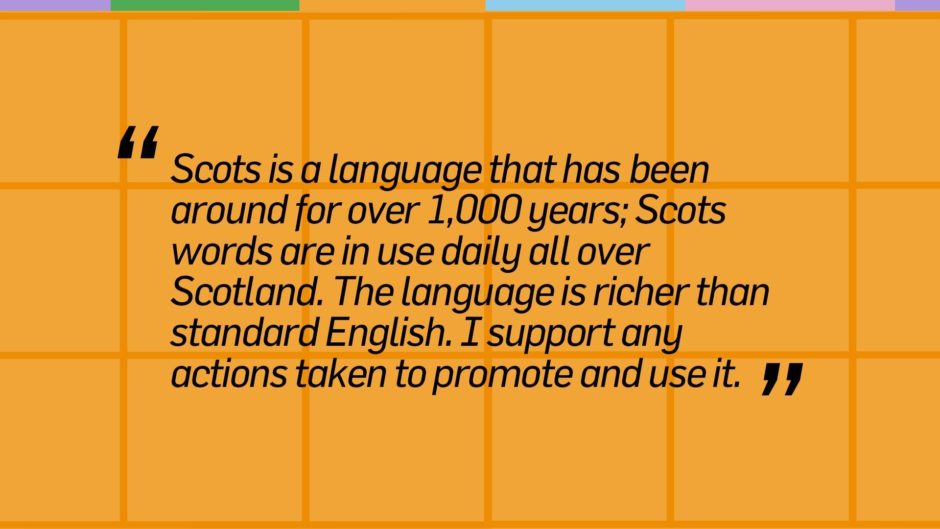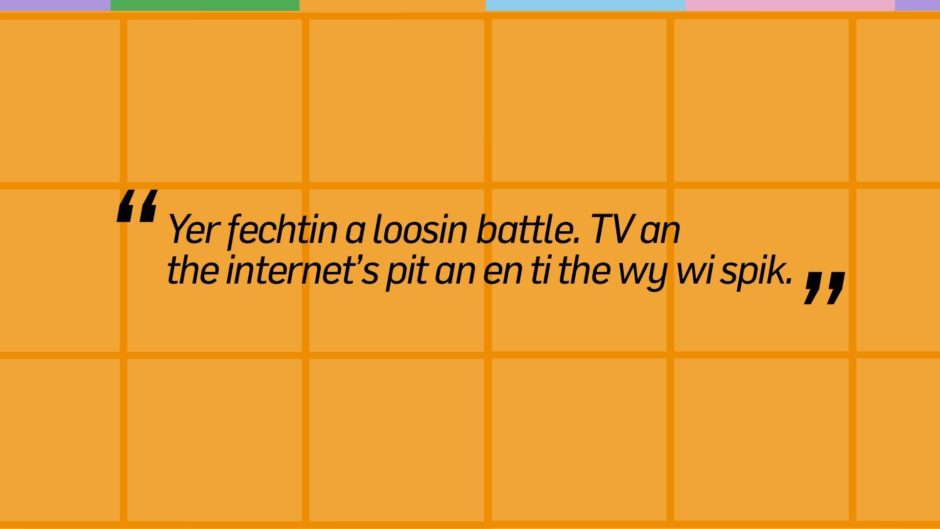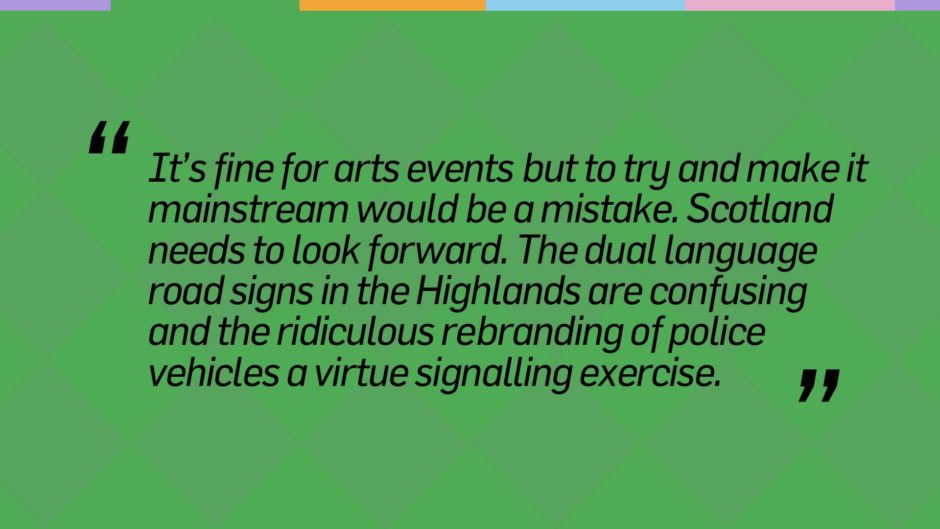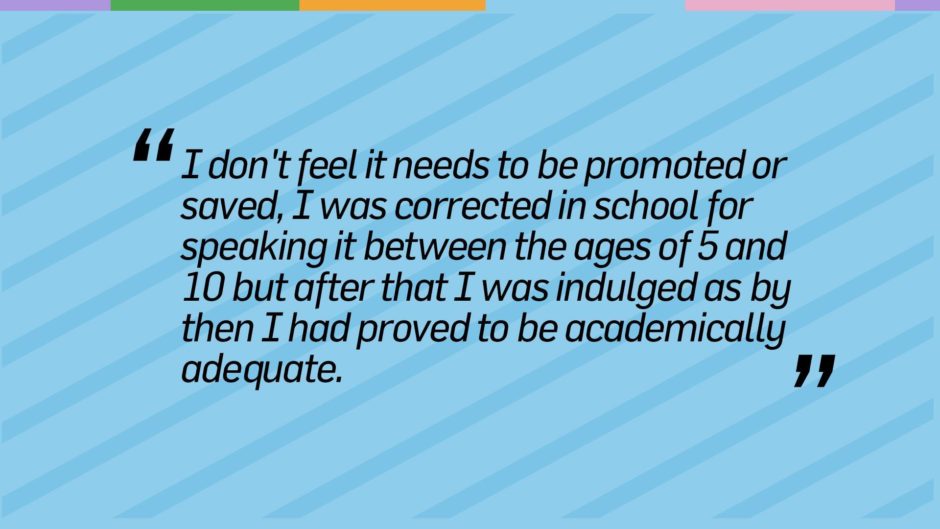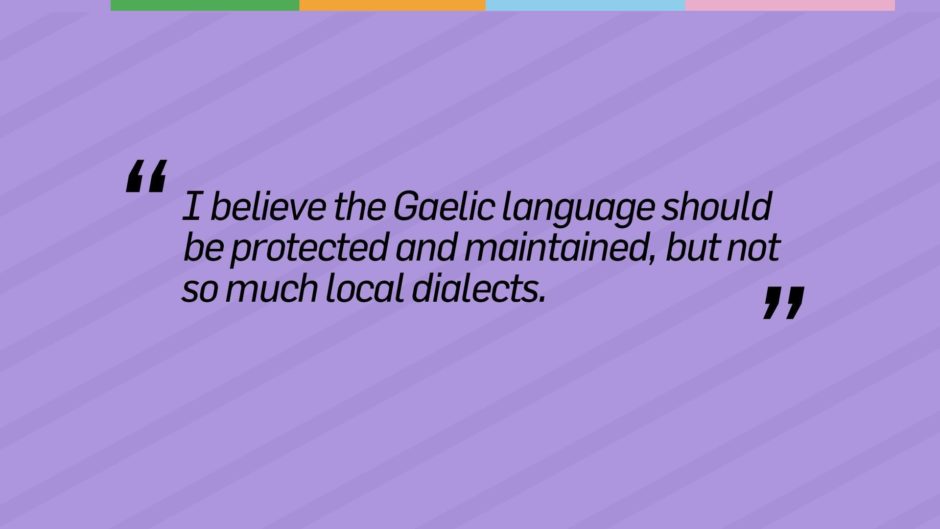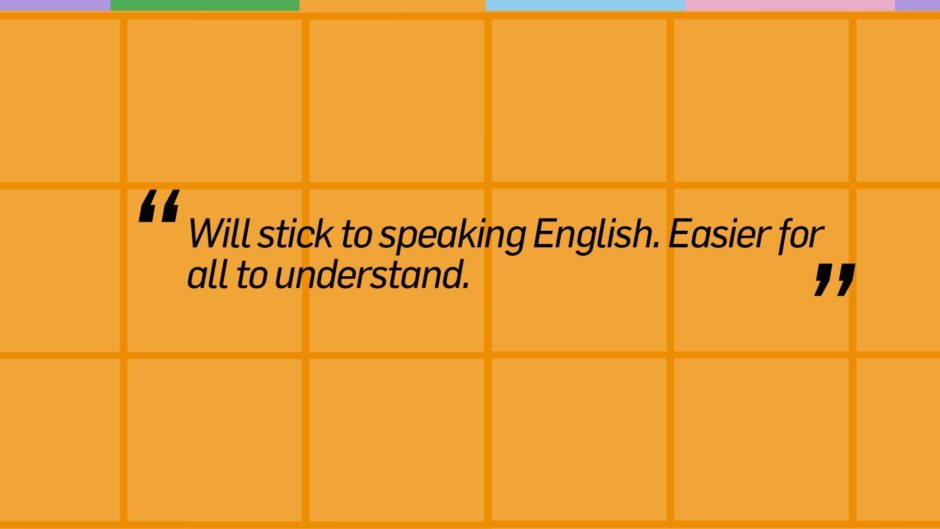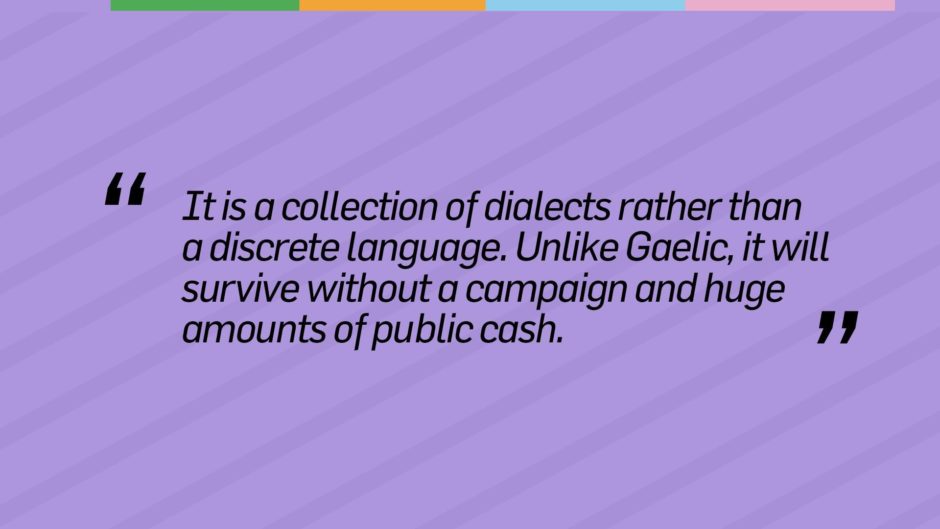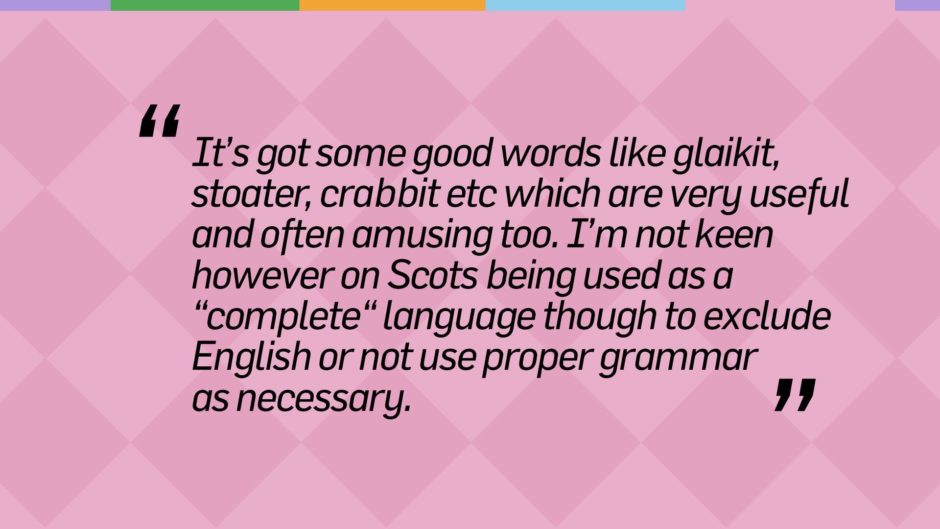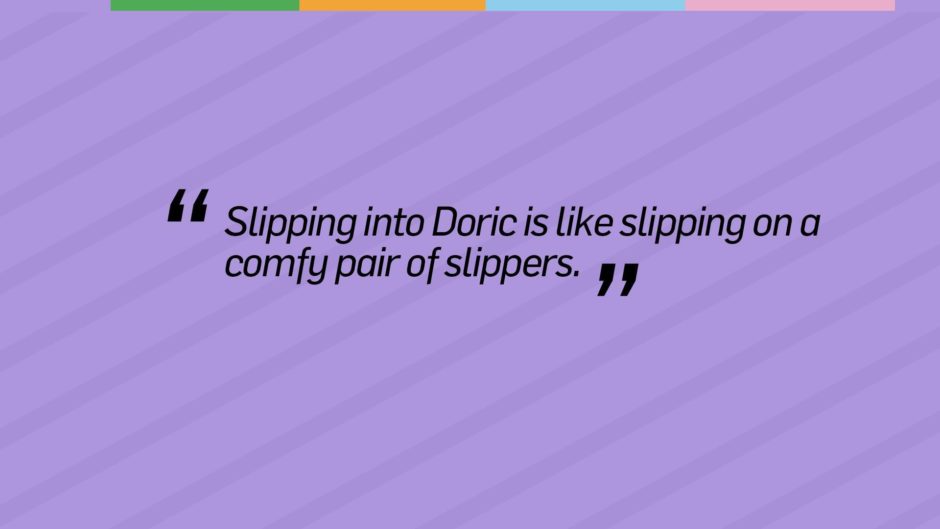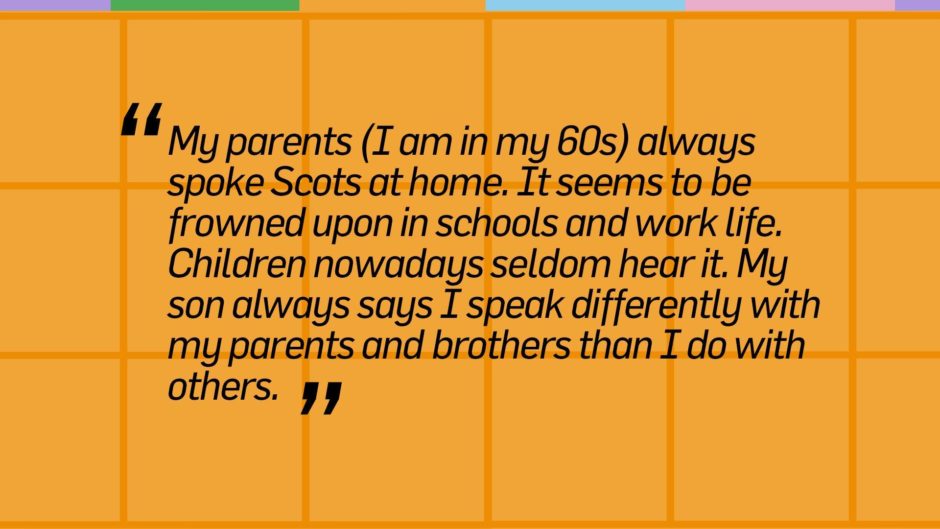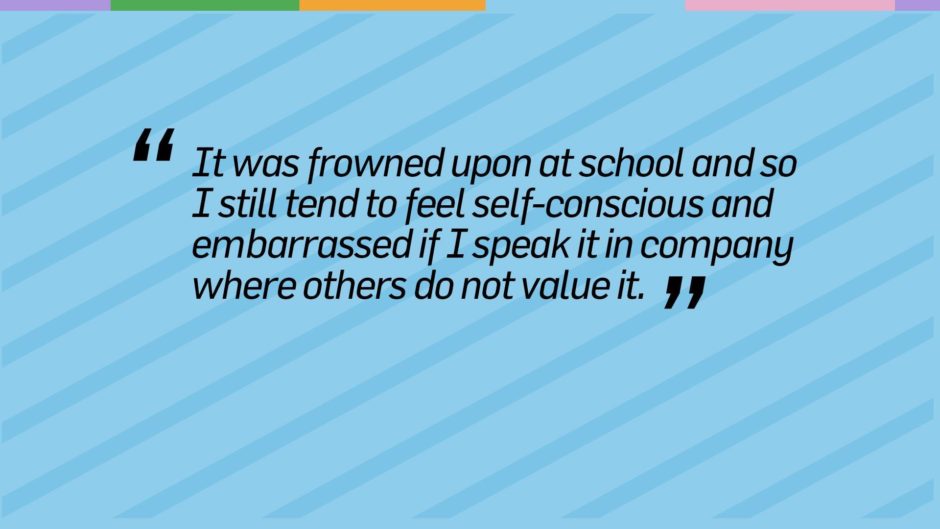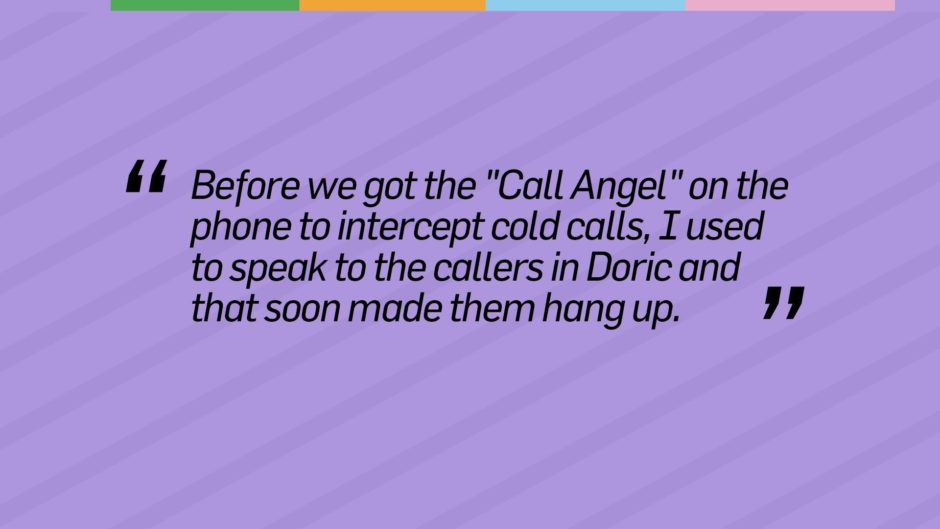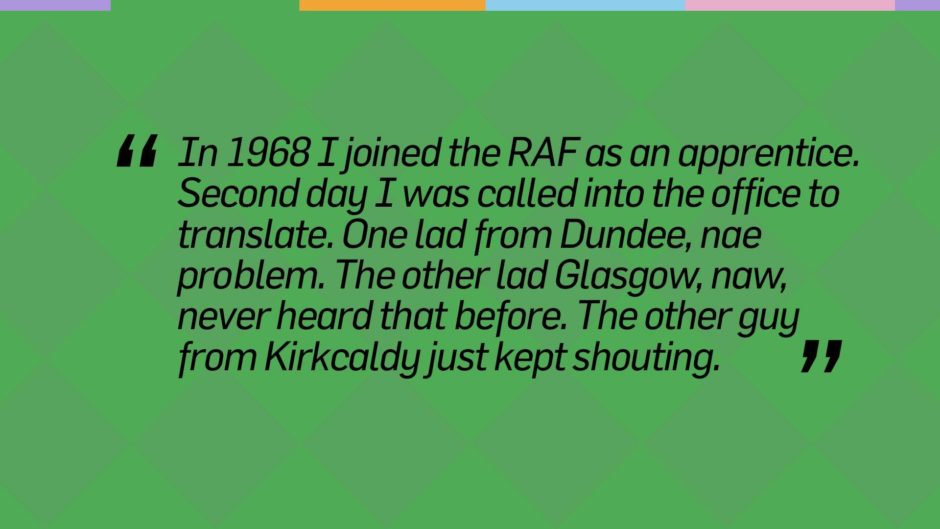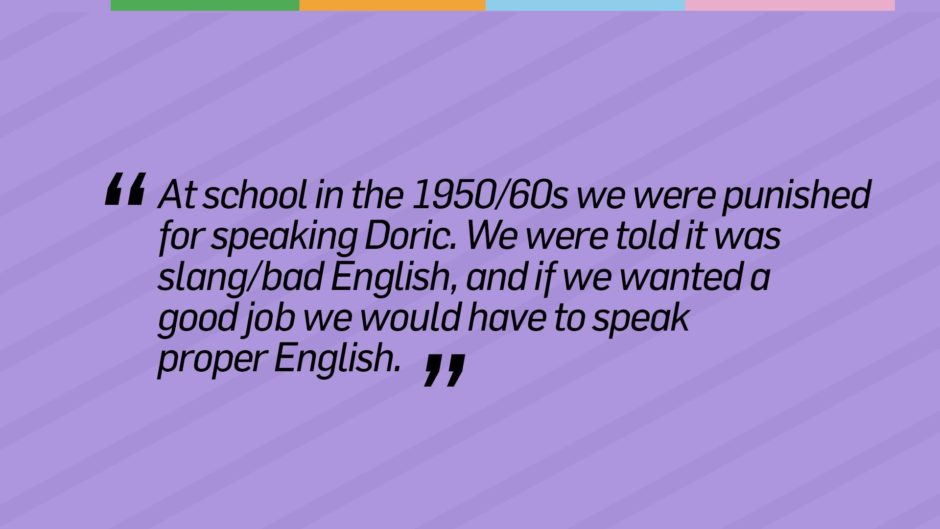Scotland has never been asked how it feels about the Scots language.
The 2011 census featured a generic question asking respondents if they spoke Scots, and while 1.5million pencils ticked “yes”, the questions stopped there.
Yet in the decade that has followed, more questions than ever before have been raised about our indigenous tongue.
Fears that the language might die out are very real. The profound and potentially terminal situation Scots Gaelic has found itself in serves as a stark warning.
Yet while Gaelic may be dead within a decade, Scots is still struggling to be seen as a legitimate language at all.
But while experts and activists take up the majority of newspaper inches, few have asked how the Scottish public feel about it all.
In July 2020, DCT Media (owner of the Press & Journal, The Courier and other media outlets across Scotland) asked readers to share their views on the Scots language and whether they might support a campaign to increase recognition of it in Scotland today.
Here are the results:
We were also inundated with comments from people wanting to share their views on the issue, with hundreds and hundreds of messages covering all sides of the Scots language debate. Here are just a selection of our favourites.
In favour of supporting the Scots language
Many participants in the survey felt passionate that the Scots language should not be allowed to fade from daily use in favour of “proper English”, with lots of support for giving Scots more recognition. There were many memories of being told off in school for using Scots, and the realisation that this has impacted the way they speak even today. Despite that, there are countless happy memories associated with Scots. For many, it remains the language of everything which is dear to them; their family, their friends and their community.
Against supporting the Scots language
In our survey criticism of Scots mainly centred around the belief that the language does not need additional support, and that to spend money on it would be a waste of public funds. Some believe that to support the language is to make a strong political statement, while others don’t believe it is a language worth recognising at all.
Is the Scots language just a way of life?
Hidden amongst all the strong opinions was a different sort of comment; a nostalgic memory or humorous moment in which Scots took centre stage. One individual compares the language to a comfortable pair of old slippers, which might just be the most sentimental yet accurate way of describing it I’ve ever read.
